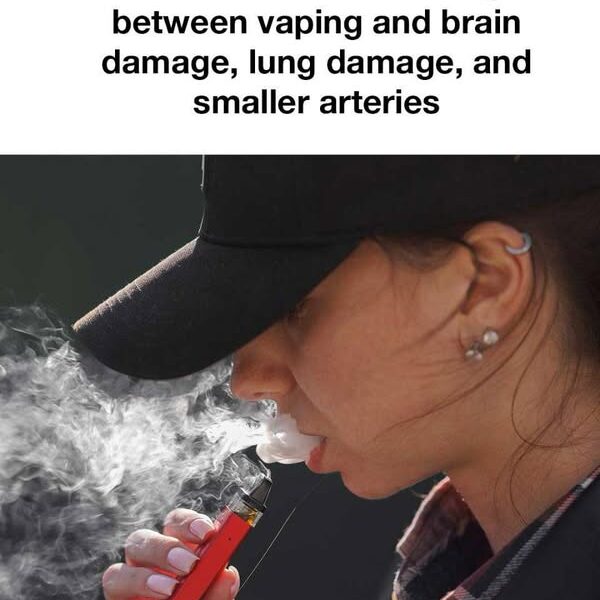Switching from cigarettes to vaping—especially nicotine-free vaping—may seem like a healthier choice. However, new research from 2024 suggests that even nicotine-free e-cigarettes could harm your heart and lungs.
If you assumed “nicotine-free” meant risk-free, experts say it’s time to reconsider.
What Is Vaping?

Vaping involves inhaling vapor produced by an electronic cigarette (e-cigarette) or similar device. These devices heat a liquid, often called e-liquid or vape juice, which typically contains:
-
Propylene glycol
-
Vegetable glycerin
-
Flavorings
-
(Optional) Nicotine
While this composition might sound harmless, heating the liquid can produce harmful byproducts. Some flavor additives, even those in nicotine-free products, have been linked to respiratory and cardiovascular concerns.
Common Chemicals Found in Vape Liquids:

-
Diacetyl: A chemical associated with bronchiolitis obliterans, sometimes referred to as “popcorn lung,” a serious but rare lung disease.
-
Benzaldehyde: A flavoring agent that can irritate airways.
-
Heavy metals: Elements like nickel, tin, and lead may be released from vape device coils during use.
These substances are sometimes present even in nicotine-free vape products.
What Does the Research Say?

A recent study compared three groups:
-
People using nicotine-containing vapes
-
People using nicotine-free vapes
-
Traditional cigarette smokers
Findings revealed that all three groups showed impaired blood vessel function—an important marker of cardiovascular health.
-
Nicotine vapes caused the most significant effects.
-
Nicotine-free vapes also caused measurable damage, although to a lesser extent than those containing nicotine.
“You’re exposing yourself to chemicals that we don’t yet fully understand and that are potentially unsafe,” said Dr. Michael Blaha, director of clinical research at the Johns Hopkins Ciccarone Center for the Prevention of Cardiovascular Disease.
Who Should Be Especially Cautious?

According to public health experts, young adults and teens are at particular risk. Many start vaping without having previously used tobacco products, increasing their lifetime exposure to potentially harmful chemicals.
“It’s one thing to switch from cigarettes to vaping,” Dr. Blaha noted.
“It’s another to start nicotine—or vaping in general—as a new behavior.”
The appeal of flavored e-liquids and the social aspect of vaping have contributed to its popularity among youth.
Expert Insights: What the Study Warns
Dr. Marianna Nabbout, one of the study’s lead researchers, highlighted the potential long-term effects:
“If a single vaping session can impair blood vessel function, the cumulative impact of regular use could be concerning.”
Although more long-term studies are needed, early findings suggest that any form of vaping—not just nicotine vaping—may have health risks.
Bottom Line: Vaping Without Nicotine Is Not Risk-Free
While vaping may be smoke-free, it is not entirely harmless. Even without nicotine, the inhalation of certain chemicals produced by vaping devices can negatively impact vascular and respiratory health.
Health professionals advise:
-
If you are trying to quit smoking, discuss safer cessation methods with a healthcare provider.
-
If you have never smoked, it is recommended not to start vaping.
Sources:




